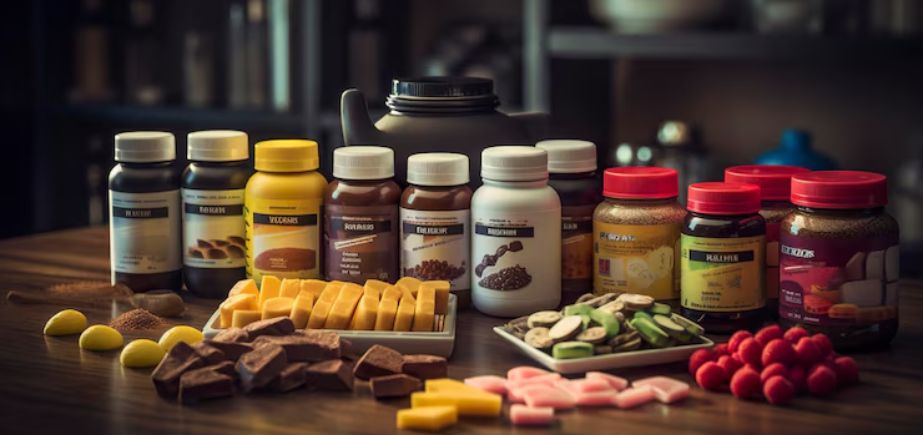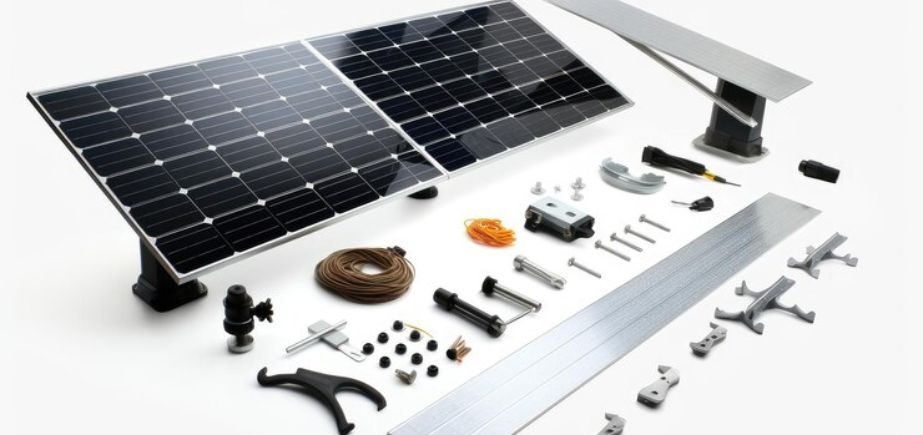Have you marveled at how retailers set their prices lower than you expected? Often, finding the answer involves purchasing products in bulk from manufacturers or importers and shipping them to retailers or other companies. While retail involves selling goods directly to consumers, gaining the best wholesale business ideas is about making successful business-to-business (B2B) deals. That requires you to buy a large amount at a cheap price and later divide it up or sell individual items to retailers, service providers, or other wholesalers. Are there good reasons to operate a wholesale business? Economies of scale ensure that getting more stock is cheaper, which makes it easier to earn profits.
In addition, wholesale companies spend less on marketing because they deal with the expenses of a point-of-sale wholesale business with a few business buyers instead of thousands of individual customers. Also, earning from B2B relationships often means you get regular, consistent work, making your overall income easier to plan. We will explain what the wholesale business concept is, its strong points, and introduce you to the Best business ideas within the wholesale industry. When you finish, you will understand the steps needed to launch or improve your wholesale business. Check out how you can start earning more by buying in bulk. Let’s begin!
What Is A Wholesale Business?
A wholesale business ideas help move goods between factories, importers, or other manufacturing sites and sellers or other businesses. Wholesalers get large deliveries of products from manufacturers, traders, or middlemen at discounted prices, then sell these to retailers or other companies. After that, they break up the supply and sell it in parts to retailers, e-commerce platforms, service places (salons or restaurants), or even to other wholesale businesses.
Some main features of a wholesale business are:
- Bulk Purchasing: Buying goods in bulk enables you to get extra discounts from suppliers, and this makes your reselling profit bigger.
- B2B Focus: Unlike retail, which markets to individual shoppers, wholesale campaigns advertise products to stores, restaurants, and online shops that want to purchase them.
- Reduced Overheads: You tend to pay less for customer support, packing, and shipment since there are fewer transactions.
- Inventory Management: Wholesalers maintain a large stock by operating warehouses, finding out what retailers will purchase, and adjusting as needed for seasonal changes.
Why Choose The Wholesale Model?
There are several reasons why wholesale has advantages over direct-to-consumer (D2C) sales.
- Bulk Discounts & Higher Margins: Purchasing items in bulk gives you access to bigger discounts from suppliers and results in lower markup for selling.
- Steady Demand & Long-Term Contracts: Once you are trusted, retailers may sign up for regular orders, depending on their situation.
- Lower Marketing Costs: You concentrate on advertising to only a small number of businesses, instead of many shoppers.
- Economies of Scale: Shipping, storing, and the cost of per-item overhead are lower when a company orders a larger quantity.
- Simplified Logistics: Completing only a few large transactions at a time lowers the number of times packaging, invoicing, and customer service issues are handled.
- Less Price Sensitivity: For business customers, reliability, quality, and being supplied consistently are far more important than any small price distinction.
Top 10 Best Wholesale Business Ideas
1. Electronics & Mobile Accessories Wholesaler

Since people are buying more consumer electronics and smartphones than ever, being a wholesaler in electronics and mobile accessories is one of the best wholesale business ideas these days. The industry deals with many products, including smartphones, power banks, chargers, earphones, Bluetooth speakers, screen protectors, phone cases, memory cards, and smartwatches. A wide range of people using mobile devices guarantees a steady increase in customers.
Market Context:
- Rapid Innovation: Frequent model releases mean that people need updated phones for compatibility.
- Accessory Boom: People usually purchase more than one protective case, screen protector, and charging cable for their devices.
- E-Commerce Growth: More businesses are selling online, so many retailers and sellers look for strong partnerships in wholesale.
Target Customers:
- Tech retailers (brick-and-mortar and online stores)
- Mobile repair shops
- Gadget kiosks at malls and airports
- E-commerce vendors on platforms like Amazon, eBay, or Shopify
Key Considerations:
- Stay updated on the latest device models and accessory compatibility.
- Partner with reputable manufacturers to avoid counterfeit products.
- Focus on bulk discounts and fast turnaround times, as electronics trends change quickly.
2. Clothing & Apparel Wholesale

There is always a strong demand for the clothing and apparel wholesale sector. Since India is among the biggest producers of textiles, wholesalers find it easy to source garments at better prices and deliver them to retailers in the country and abroad. Higher wages, rapid fashion trends, more internet purchasing, and a strong youth fashion culture are all expected to contribute to the Indian apparel market’s projected growth from $102.8 billion in 2020 to $135 billion by 2025.
Market Context:
- Fast Fashion vs. Sustainable: Retailers have to make sure they offer fast-fashion and more sustainable clothing lines.
- Seasonality: Changes in demand due to seasonal trends mean businesses have to carefully monitor their inventory stock.
- Customization: Embroidery, printing, or the option to private-label gives added benefits to customers.
Target Customers:
- retail stores that sell clothing for men, women, and children.
- Online clothing stores and marketplaces
- Uniform suppliers (schools, hotels, corporations)
- Specialty textile retailers (plus-size, activewear, maternity)
Key Considerations:
- Source from factories offering high quality at low cost, possibly from regions like Bangladesh, Vietnam, or India.
- Provide private-label and customization services to differentiate.
- Monitor fashion trends and seasonal transitions to avoid overstocking.
3. Beauty & Personal Care Products Wholesale

Because of more awareness about grooming, skincare, and wellness, the beauty and personal care wholesale business in India is growing fast. The company offers a wide range of skincare, makeup, men’s products, and hygiene goods that are always improving. As the Indian beauty market is expected to hit $30 billion by 2026, wholesalers in this sector are attracting more and more customers who return and demand more products regularly.
Market Context:
- Rising Self-Care Trend: Many are investing in high-quality skincare and wellness products, which is becoming a popular trend.
- Emerging Niche Brands: Natural, cruelty-free, and vegan cosmetics are in high demand.
- Multi-Channel Sales: Salons and online shops alike count on having decent wholesale partners.
Target Customers:
- Beauty salons and spas
- Dermatology clinics and plastic surgery centers
- E-commerce beauty retailers (natural/organic niche stores)
- Drugstores and supermarkets
Key Considerations:
- Vet suppliers for product certifications (FDA, ISO, cruelty-free labels).
- Offer product training and marketing support to salons and retail partners.
- Maintain robust cold-chain or controlled-temperature storage for sensitive items when needed.
4. Health & Wellness Supplements Wholesale

More and more people in India are now turning to health supplements, as they care more about health, fitness, and keeping diseases at bay. After COVID, more people are looking after their immunity, physical health, and nutritional needs, so vitamins, protein powders, herbal supplements, and nutraceuticals have gained popularity. Nutraceuticals in India are predicted to rise above $18 billion by 2025.
Market Context:
- Growing Health Awareness: Consumers focus on immune support, fitness, and preventive health.
- E-Commerce & Subscription: Online supplement stores and subscription boxes need consistent supplies.
- Regulatory Scrutiny: Supplements require compliance with local health regulations and quality standards.
Target Customers:
- Health food stores
- Gyms and fitness centers
- Online supplement shops
- Pharmacies and wellness clinics
Key Considerations:
- Source from certified manufacturers (GMP, NSF).
- Check that product compositions and labeling adhere to legal specifications.
- Offer diverse product lines: vitamins, minerals, proteins, and herbal blends.
5. Homeware & Kitchenware Wholesale

The homeware and kitchenware industry in India is doing well because more people are interested in making their homes better, cities are growing, and social media and décor-related content have become important. Kitchen tools and dining sets have to be both well-priced and attractive to people. Business experts predict that India’s kitchenware market will exceed ₹40,000 crores by 2027.
Market Context:
- Pandemic-Era Domestic Focus: Because of the pandemic, many turned to DIY, home cooking, and baking, which led to a larger demand for kitchen supplies.
- Diversified Styles: Scandinavian for those who like minimalism, American farmhouse for country lovers, retailers should have a balance between these various styles.
- E-Commerce Momentum: More online purchases of home goods lead to increased need for bulk ordering from dependable suppliers.
Target Customers:
- Kitchen supply stores
- Home decor boutiques
- Online homeware retailers
- Department store home sections
Key Considerations:
- Carry both classic essentials (pots, pans, cutlery) and trendy items (air fryers, silicone bakeware).
- Ensure durability and safety certifications (FDA food-safe, BPA-free, etc.).
- Provide attractive packaging or bundling options for retailers.
6. Office Supplies & Stationery Wholesale

The wholesale office supplies and stationery industry keeps seeing stable growth due to the nation’s expanding education facilities and rise in SMEs. India’s stationery market is predicted to have an annual growth of over 8% and to exceed ₹15,000 crores in the following years.
Market Context:
- Hybrid Work Models: More equipment for home offices (such as standing desks and ergonomic chairs) is now being demanded, along with regular office supplies.
- Eco-Friendly Shift: Recycled paper and stationery that care for the environment are becoming more common.
- Educational Bulk Buying: At the beginning of every academic year, schools and colleges have to purchase a large number of school supplies.
Target Customers:
- Office supply retailers
- Corporate procurement departments
- Schools, colleges, and universities
- E-commerce stationery stores
Key Considerations:
- Keep a balanced mix of everyday items (pens, paper) and high-ticket goods (office chairs, filing cabinets).
- Offer customization like branded notebooks or corporate gift sets.
- Embrace eco-friendly lines to meet sustainable purchasing demands.
7. Automotive Parts & Accessories Wholesale

The parts and accessories wholesale industry in India is one of the top wholesale business ideas, thanks to the strong automotive industry, more vehicle registrations, and greater demand for improving and preserving cars. India is the third-largest vehicle market in the world. Since India has more than 300 million automobiles, the aftermarket industry’s value of ₹75,000 crore is set to grow at a fast pace of 10–12% each year.
Market Context:
- Aftermarket Growth: As vehicles get older, people need to purchase replacement parts, so demand in the aftermarket grows.
- DIY Maintenance Trend: DIY Enthusiasts modernize classic or high-performance cars by obtaining parts themselves.
- E-Commerce Auto Sales: Auto parts vendors online depend on strong wholesale connections.
Target Customers:
- Auto repair shops and garages
- Car dealerships and service centers
- Online automotive parts retailers
- DIY auto enthusiasts
Key Considerations:
- Source OEM (Original Equipment Manufacturer) and aftermarket parts to serve different customer segments.
- Provide reliable warranty and return policies for defective items.
- Ensure compliance with safety standards (DOT, ISO, etc.).
8. Pet Supplies Wholesale

The rise in pet ownership and growing awareness of the needs of pets are driving growth in India’s wholesale pet supply industry. Presently, the pet care industry in India has a value of more than ₹5,000 crores and is expected to increase at an annual rate of 14% in the following years.
Market Context:
- Rising Pet Ownership: After the pandemic, more households are adopting dogs, cats, and a variety of pets.
- Premium & Specialized Lines: Grain-free, organic, and foods for particular breeds – known as specialized lines – are more profitable for pet food brands.
- E-Commerce Pet Sales: There is a surge in online shops selling pet supplies, which need wholesalers.
Target Customers:
- Pet specialty stores
- Veterinary clinics and hospitals
- Online pet supply retailers
- Pet grooming salons
Key Considerations:
- Ensure products meet regulatory standards for pet safety and nutrition.
- Offer a range: budget-friendly staples to premium specialty lines.
- Provide marketing support (shelf displays, promotional materials) for retailer partners.
9. Renewable Energy Products Wholesale

With environmental worries rising, more incentives from the government and increasing knowledge among companies and consumers, the wholesale trade of solar panels, inverters, LED lights, batteries, and similar products is now very profitable and safe in the future. By 2030, India aims to have 500 GW of renewable energy, mainly thanks to solar energy.
Market Context:
- Sustainable Development: Passing laws to improve solar energy use and making buildings more energy-efficient is done by governments.
- Residential & Commercial Demand: Many homes, businesses, and factories want to switch to renewable energy.
- Technological Advancements: More solar panels and batteries have become affordable due to technological progress, which encourages more people to choose them.
Target Customers:
- Solar installation companies
- Electrical contractors and builders
- Retailers specializing in green technology
- Government or NGO projects focusing on sustainability
Key Considerations:
- Partner with certified, reputable manufacturers to ensure product reliability.
- Keep abreast of evolving regulations and incentives for renewable energy adoption.
- Assist installer partners with product training and technical support.
10. Medical & Lab Equipment Wholesale

This industry is very steady and brings excellent rewards in India. This wholesale business idea provides different products to hospitals, diagnostic labs, clinics, government health schemes, and research institutions. According to predictions, the healthcare sector in India will reach $638 billion by 2025 due to higher income, greater health awareness, and initiatives taken by the government, such as Ayushman Bharat.
Market Context:
- Continuous Healthcare Demand: There is a lasting need for medical products, regardless of the state of the economy.
- Pandemic-Driven Growth: As a result of the pandemic, PPE and diagnostic tools became more popular.
- Technological Innovation: Higher spending on healthcare for advanced medical technology.
Target Customers:
- Hospitals and clinics
- Diagnostic laboratories
- Medical research institutions
- Government health departments and NGOs
Key Considerations:
- Strict adherence to healthcare and safety regulations (FDA, WHO, ISO).
- Keep a large stock of consumables that are used frequently, such as test kits and PPE.
- Offer product training, warranties, and responsive after-sales service to build trust.
Comparison Table Of The Top 10 Wholesale Business Ideas
| Wholesale Business Ideas | Best-Selling Products | Key Market Trends | Target Customers | Key Considerations |
| 1. Electronics & Mobile Accessories | Smartphones, chargers, headphones, and cases | Rapid tech updates, booming accessories, e-commerce | Tech retailers, mobile shops, online sellers | Stay updated with trends, avoid counterfeit items, focus on speed, and pricing |
| 2. Clothing & Apparel | Fashion apparel, uniforms, and custom clothing | Fast fashion, sustainable lines, seasonal trends | Boutiques, online stores, and uniform suppliers | Source low-cost quality, offer private labels, and monitor fashion changes |
| 3. Beauty & Personal Care | Skincare, cosmetics, and grooming items | Natural/vegan products, self-care boom | Salons, clinics, e-commerce, and drugstores | Ensure certifications, offer training, and maintain cold storage |
| 4. Health & Wellness Supplements | Vitamins, proteins, and herbal supplements | Growing awareness, online subscriptions | Gyms, health stores, clinics, and online sellers | Comply with health laws, source certified, and offer diverse health lines |
| 5. Homeware & Kitchenware | Cookware, utensils, and small appliances | DIY/home focus, trend-driven styles | Kitchen stores, home decor, and online shops | Stock essentials & trendy, ensure durability, provide good packaging |
| 6. Office Supplies & Stationery | Pens, furniture, and school supplies | Hybrid work, eco-friendly push, and academic demand | Offices, schools, and online stores | Mix essentials and premium, customize products, and offer sustainable lines |
| 7. Automotive Parts & Accessories | Car parts, seat covers, and audio systems | Aftermarket growth, DIY car repairs | Repair shops, dealerships, and online vendors | Offer OEM/aftermarket mix, strong warranties, and comply with safety norms |
| 8. Pet Supplies | Food, grooming, toys, and accessories | Pet boom post-pandemic, premium food surge | Pet stores, clinics, and online retailers | Meet pet safety laws, offer product variety, and provide promotional support |
| 9. Renewable Energy Products | Solar panels, LED lights, batteries | Green energy laws, cost drop in tech | Installers, green builders, NGOs | Partner with certified brands, know energy laws, and offer tech/product support |
| 10. Medical & Lab Equipment | PPE, diagnostic tools, instruments | Ongoing demand, pandemic-triggered growth | Hospitals, labs, and health agencies | Follow strict regulations, stock high-demand PPE, provide warranties, and support |
Tips For Launching A Successful Wholesale Business
- Research Your Niche Thoroughly: Study what the market wants, your competitors’ pricing policy, and seasonality before buying any product.
- Build Strong Supplier Relationships: Secure good payment terms, special bulk discounts, and steady delivery times to keep enough cash on hand and to stop stockouts.
- Invest in Inventory Management Software: Tracking your stock levels well, putting in place automatic reorder points, and using real-time reports stops you from running out of stock or having too many.
- Focus on Quality & Compliance: It is especially important to choose products that are certified by the industry in areas where regulations are strict, such as healthcare or food.
- Offer Value-Added Services: Give product training, create needed promotional materials, and let customers customize or private label businesses to set them apart from competitors.
- Cultivate B2B Networks: At industry gatherings, trade shows, and local business events, you can build networks of clients and partners.
- Streamline Logistics & Shipping: Choose affordable freight companies and improve your packaging so you use less time and money during deliveries.
Conclusion
If you pick the right sector that aligns with market demand, regulations, and your skills, exploring top-notch Wholesale Business Ideas can lead to a highly profitable venture. Both categories that are surging, such as renewable energy and medical supplies, and classic niches such as clothing and pet products, offer many opportunities to grow and achieve stable earnings. High-quality B2B companies are formed by attaching importance to relationships with suppliers, first-rate inventory control, and outstanding customer service.
Take advantage of the guidance above to deal with research, logistics, and following regulations, and realize that in wholesale, making and keeping large shipments brings a consistent profit stream. When a wholesaling effort is well-studied, efficiently managed, and evolves, it can serve customers for years, generating profits.
Frequently Asked Questions
1. How much capital is needed to start a wholesale business?
Depending on the industry, some businesses (like those selling apparel) require only $5,000–$10,000 for initial inventory, but others (such as those in electronics or medical supplies) could need as much as $20,000–$50,000.
2. Do I need a warehouse immediately?
Not always. Most wholesalers begin with drop-shipping or 3PL providers, and when their orders increase, they begin to use their warehouse.
3. How do I find reliable suppliers?
Visit trade events, look for suppliers online (on sites such as Alibaba and Global Sources), ask for test samples, and ensure the products are certified before ordering in bulk.
4. Is a wholesale license required?
Many places need a wholesale or reseller license for tax-free B2B sales. Study the rules and regulations set by your local government and register where necessary.
5. How can I differentiate my wholesale business?
Give clients extra options (made-to-order products, unique packaging), keep costs low, help buyers find solutions, and focus on particular or seldom-offered products.
